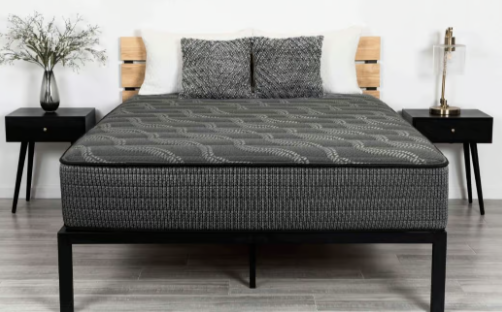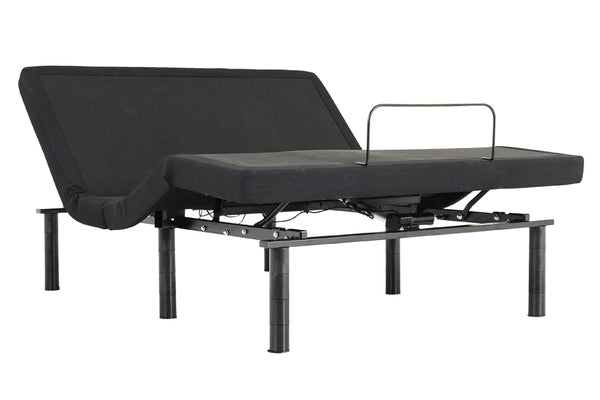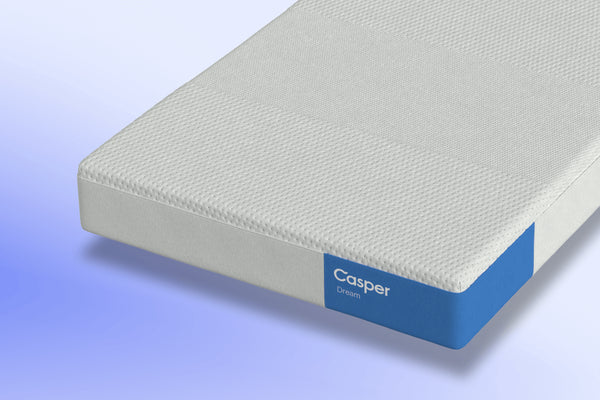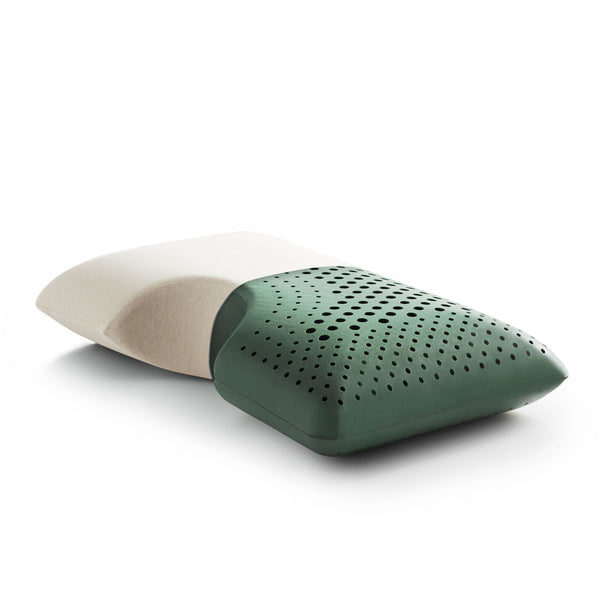
When it comes to achieving a good night's sleep, many people focus on the quality of their mattress, but one essential element often gets overlooked: the pillow. The right pillow can enhance your comfort, support your posture, and ensure you wake up feeling refreshed. With so many options out there, how do you pick the right one for your specific needs? In this comprehensive guide, we'll break down everything you need to know to choose the best pillow for your mattress.
Understanding Different Pillow Types
The first step in choosing the right pillow is to understand the different types available. Each pillow type offers varying levels of support, comfort, and durability. Here are some of the most common types:
Memory Foam Pillows
Memory foam pillows are designed to contour to the shape of your head and neck. This feature provides excellent support and relieves pressure points, making them a fantastic choice for those who suffer from neck or back pain. They also tend to retain heat, so if you're someone who sleeps warm, consider looking for gel-infused memory foam options for added cooling.
Latex Pillows
Latex pillows are made from either natural or synthetic latex. They offer firm support and excellent durability. This type of pillow is also hypoallergenic and resistant to dust mites, making it a great choice for allergy sufferers. Latex pillows provide a bouncier feel compared to memory foam and can help keep your head and neck aligned while you sleep.
Feather and Down Pillows
Feather and down pillows are known for their softness and adaptability. They can be easily molded to fit your preferred sleeping position, which can help support your neck and head effectively. However, these pillows may require frequent fluffing to maintain their loft and may not be suitable for those with allergies unless they are specifically labeled as hypoallergenic.
Synthetic Fiber Pillows
Synthetic fiber pillows provide a more affordable option compared to natural materials. These pillows mimic the softness of down but offer better resistance to allergens. Synthetic pillows come in various densities, allowing you to choose one that fits your unique comfort preferences.
Consider Your Sleeping Position
Your sleeping position plays a crucial role in determining the best pillow for your mattress. Here’s how to choose based on whether you sleep on your back, side, or stomach:
Back Sleepers
If you sleep on your back, you’ll want a medium-loft pillow that supports the natural curve of your neck without pushing your head too far forward. Look for options that provide both support and some softness. A contour pillow may be ideal, as it can cradle the neck while allowing your head to rest comfortably.
Side Sleepers
Side sleepers typically require a higher loft pillow to fill the space between their head and the mattress. This helps keep the spine aligned and reduces the risk of shoulder or neck pain. A firmer pillow is often recommended for side sleepers, as it will maintain its shape and provide adequate support throughout the night.
Stomach Sleepers
Stomach sleepers should opt for a low-loft and softer pillow to prevent straining the neck and back. A flat pillow or even going pillowless can keep the spine aligned and avoid discomfort. Choosing a pillow that is adjustable can be an excellent way to ensure you have the perfect height for your needs.
Pillow Firmness Levels
The firmness of the pillow can greatly impact your sleep quality. While pillows range from soft to firm, your personal preference, body weight, and sleep position will dictate the level of firmness best for you.
Soft Pillows
Soft pillows are typically best for stomach sleepers or those who prefer a less rigid resting surface. They allow your head to sink into the pillow, providing a more cushioned experience. However, they may not maintain the needed alignment for back and side sleepers.
Medium Pillows
Medium firmness pillows cater to a wider range of sleepers. They provide enough support for back and stomach sleepers while still being adaptable enough for side sleepers if they prefer a bit of give. A medium pillow is versatile and is often a great all-rounder.
Firm Pillows
Firm pillows are ideal for side sleepers who require extra head and neck support. They help maintain spinal alignment and prevent the head from sinking too deeply, which can lead to misalignment and pain.
Allergies and Sensitivities
If you suffer from allergies, it's vital to choose a pillow that minimizes allergens. Natural materials like down and feather can trigger allergies in some people, while synthetic options may offer a better solution. Look for hypoallergenic pillows and consider pillow protectors to keep dust mites and allergens at bay.
Cooling Features
For those who tend to sleep hot, consider pillows with cooling features. Many memory foam pillows now come with gel infusions or breathable covers designed to promote airflow and dissipate heat. Choosing a pillow with moisture-wicking properties can also be beneficial in maintaining a comfortable sleeping temperature.
Pillow Size Matters
Pillows come in various sizes, including standard, queen, and king. The size of your pillow should correlate with the size of your mattress and your personal sleeping habits. Here’s a quick overview of the sizes:
Standard Pillows
Standard pillows are typically 20" x 26" and are best suited for twin or full-size beds. They offer ample support and versatility for most sleepers.
Queen Pillows
Queen pillows are a bit larger, measuring around 20" x 30". They provide additional space for those who shift positions during the night and work well with queen-sized mattresses.
King Pillows
King pillows, measuring about 20" x 36", are perfect for king-sized beds. They provide an extensive area for head support and are ideal for those who share a bed and need more coverage.
Trial Periods and Returns
When purchasing a pillow, many mattress retailers offer trial periods that allow you to test the pillow in the comfort of your own home. Take advantage of this option to ensure your chosen pillow meets your needs. If it doesn’t work out, familiarize yourself with the return policy so you can exchange or return it hassle-free.
Caring for Your Pillow
To maintain the quality and lifespan of your pillow, proper care is essential. Here are some tips:
- Regularly Fluff: Fluff your pillow daily to maintain its shape and prevent clumping.
- Protect It: Use pillow protectors to ward off stains, spills, and allergens.
- Follow Care Instructions: Always adhere to the manufacturer's washing instructions. Some pillows are machine washable, while others may require spot cleaning.
- Replace Periodically: Replace your pillow every 1-3 years or as needed to ensure you maintain adequate support and hygiene.
Finding Your Ideal Pillow Pairing
Ultimately, finding the right pillow means considering the synergy between your pillow and mattress. The combination can significantly affect your overall comfort and sleep quality. Here’s how to ensure your pillow complements your mattress:
- Test for Height: When lying in your sleeping position, make sure your head and neck are aligned with your spine. This alignment is crucial for preventing pain and discomfort.
- Feel the Support: Ensure your pillow provides enough support for your sleeping position without sinking too low.
- Evaluate Comfort: Your pillow should feel comfortable to you. Don’t settle for a pillow that feels uncomfortable, even if it's highly-rated.
Choosing the best pillow for your mattress can make all the difference in your sleep quality. It is an integral part of your sleep environment, contributing to how well you rest and recover each night. By considering your sleeping position, pillow type, firmness level, and any allergies, you can select the perfect pillow that not only complements your mattress but enhances your overall sleep experience.
Time to Transform Your Sleep Experience
With the insights from this guide, you're now equipped to make an informed decision when it comes to selecting the ideal pillow for your mattress. The perfect pillow can be a game changer for your sleep quality, cervical support, and overall health. So go ahead and embark on your journey to a better night's sleep—your body will thank you for it!









